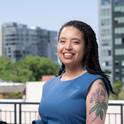Abstract
From Ferguson to Baltimore, New York City to Los Angeles, the historic social and political disenfranchisement and unequal treatment of communities of color has led to civil unrest and uprisings. Movements such as Black Lives Matter and No Papers and No Fear combine traditional outreach and activism with new forms of social media to demand change. Unfortunately, many policy makers, developers, and practitioners have historically contributed to racially segregated and unequal communities through urban renewal, redevelopment and exclusionary zoning practices. Moreover, the unequal use of the criminal justice system against racial minorities often furthers this caste system in housing, employment, education and other areas. Yet planning scholars and practitioners also have a strong tradition of theorizing and advocating for social justice and equality for historically disenfranchised groups. Planners are once again standing at a crucial juncture in their professional development to advance just and equitable public policies and practices. In this context, the 2016 Dale Prize asks two straightforward questions: How have planners contributed to racial and spatial inequality? How can we use our collective influence and expertise to alter the course of separate-and-unequal treatment of racialized communities?
Disciplines
Publication Date
Winter February 10, 2016
Citation Information
Lisa K Bates. "Planning for Community Self-Determination and Racial Justice" Department of Urban and Regional Planning, Cal Poly-Pomona (2016) Available at: http://works.bepress.com/lisa_bates/21/
